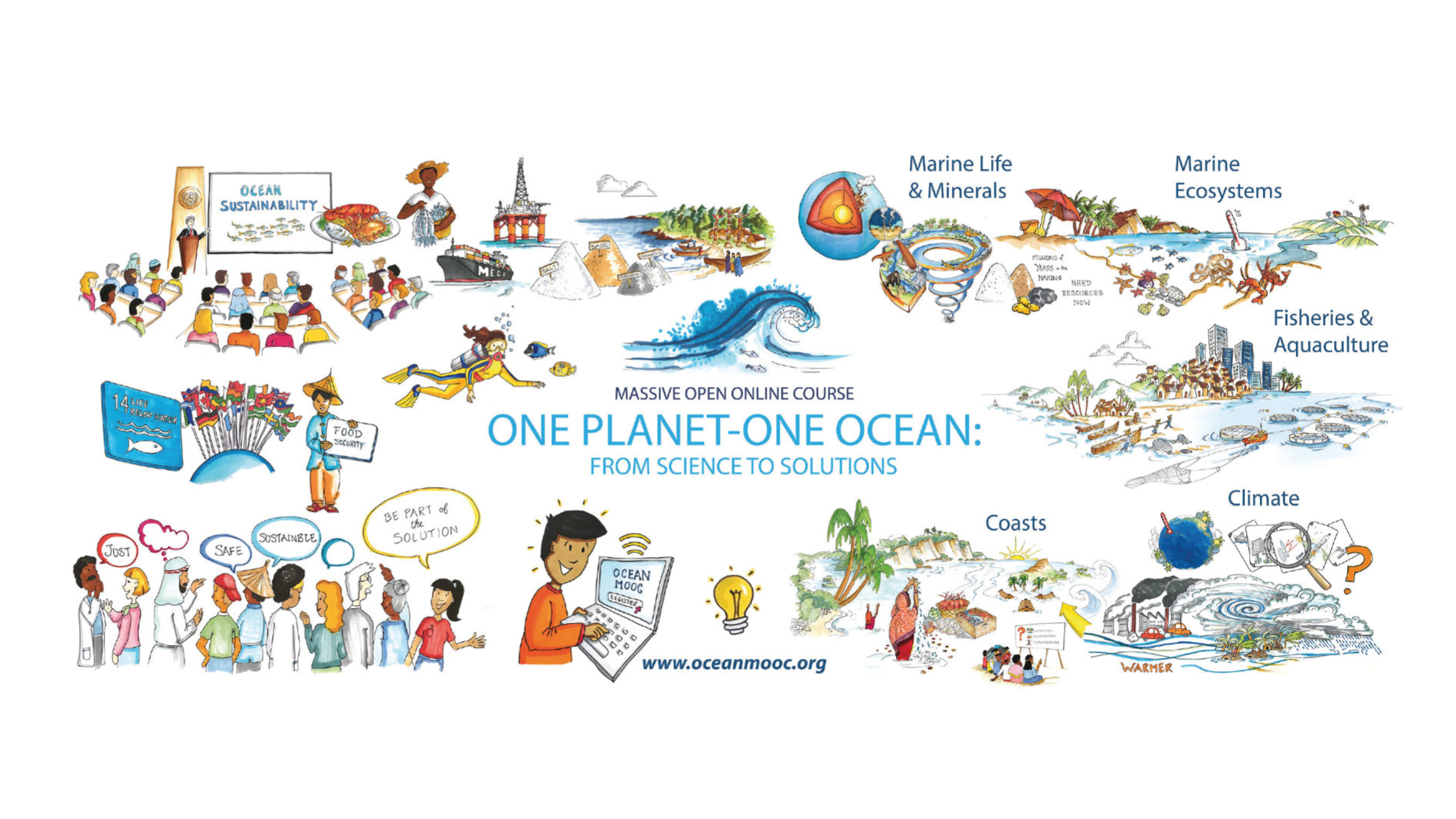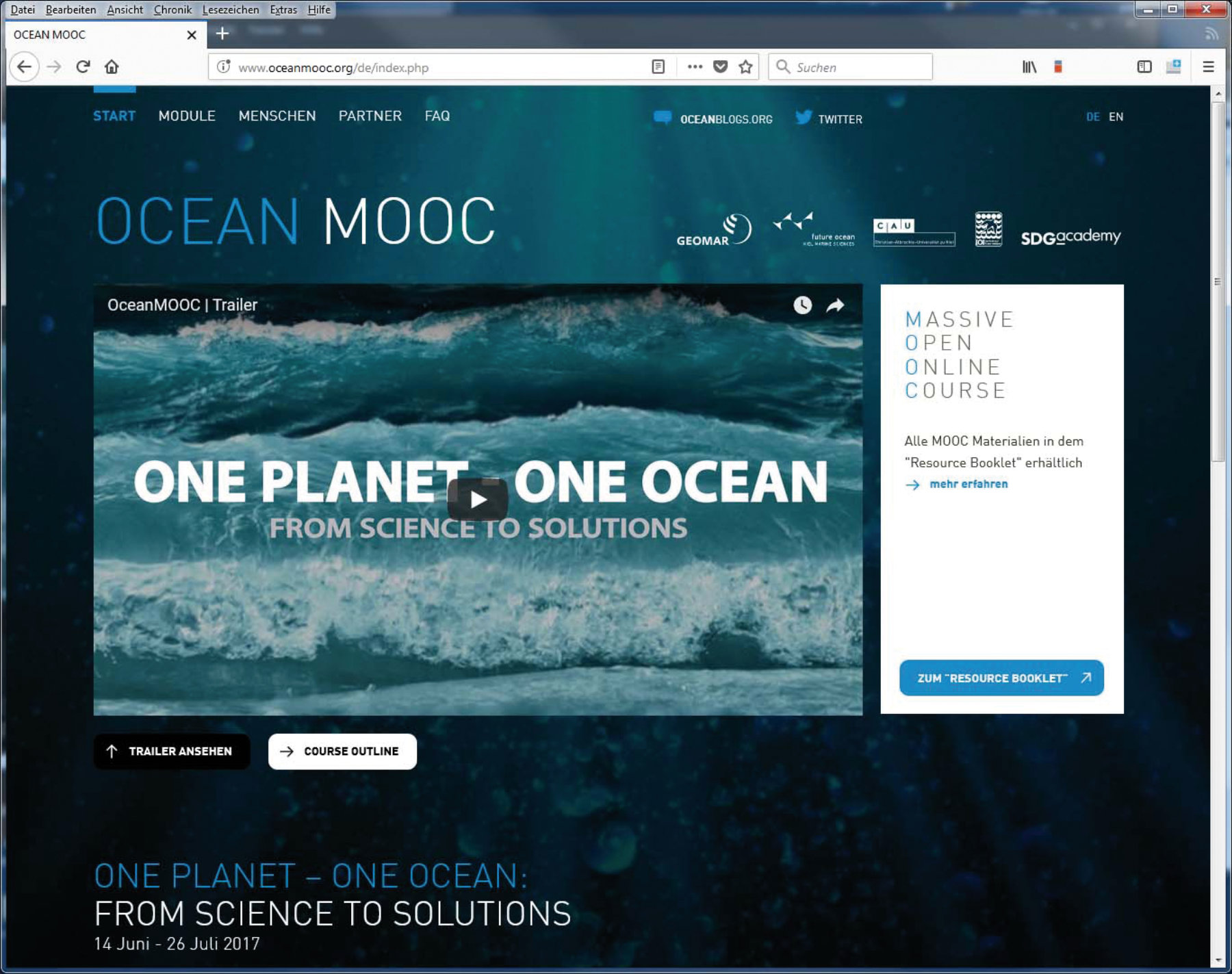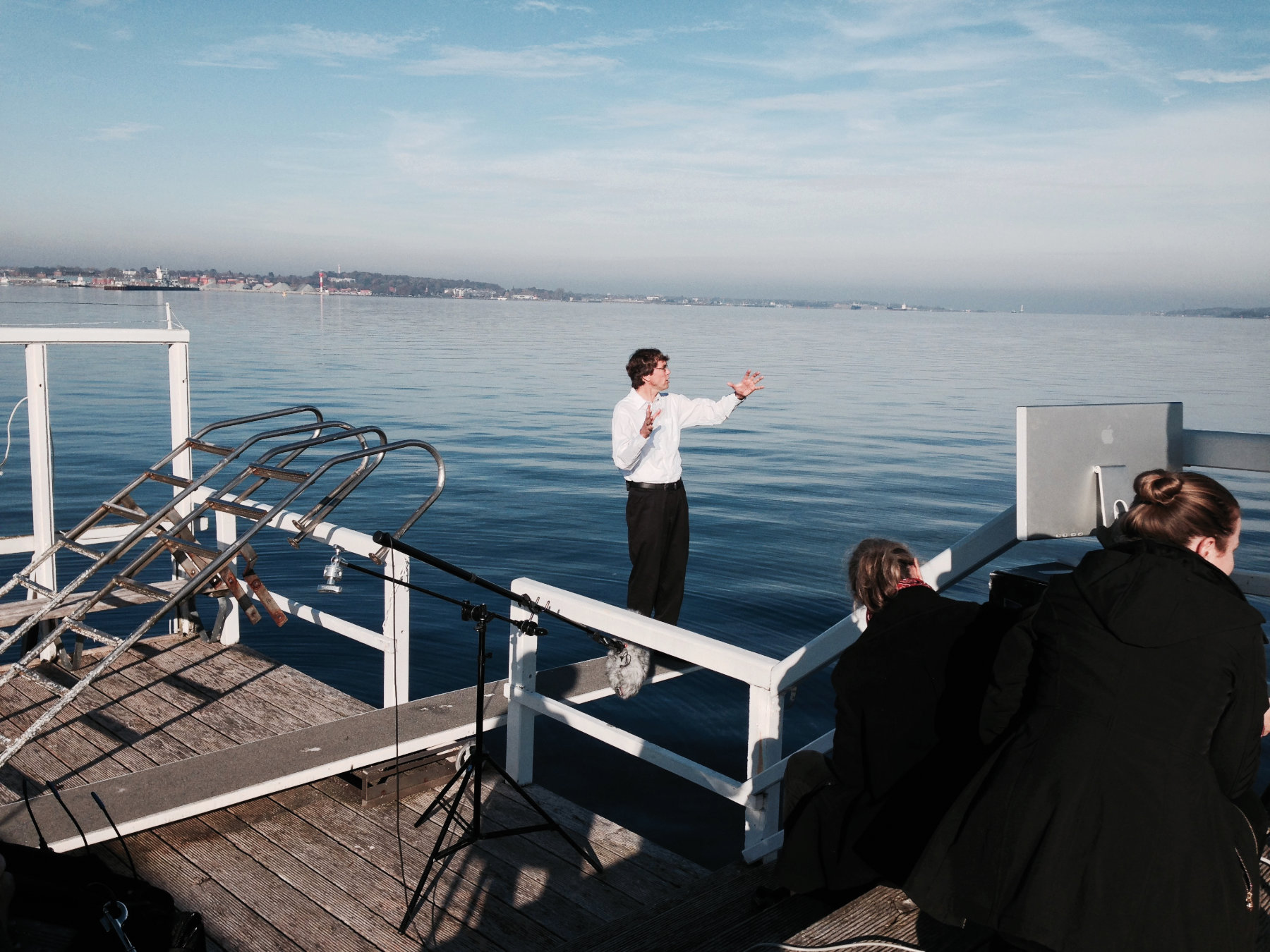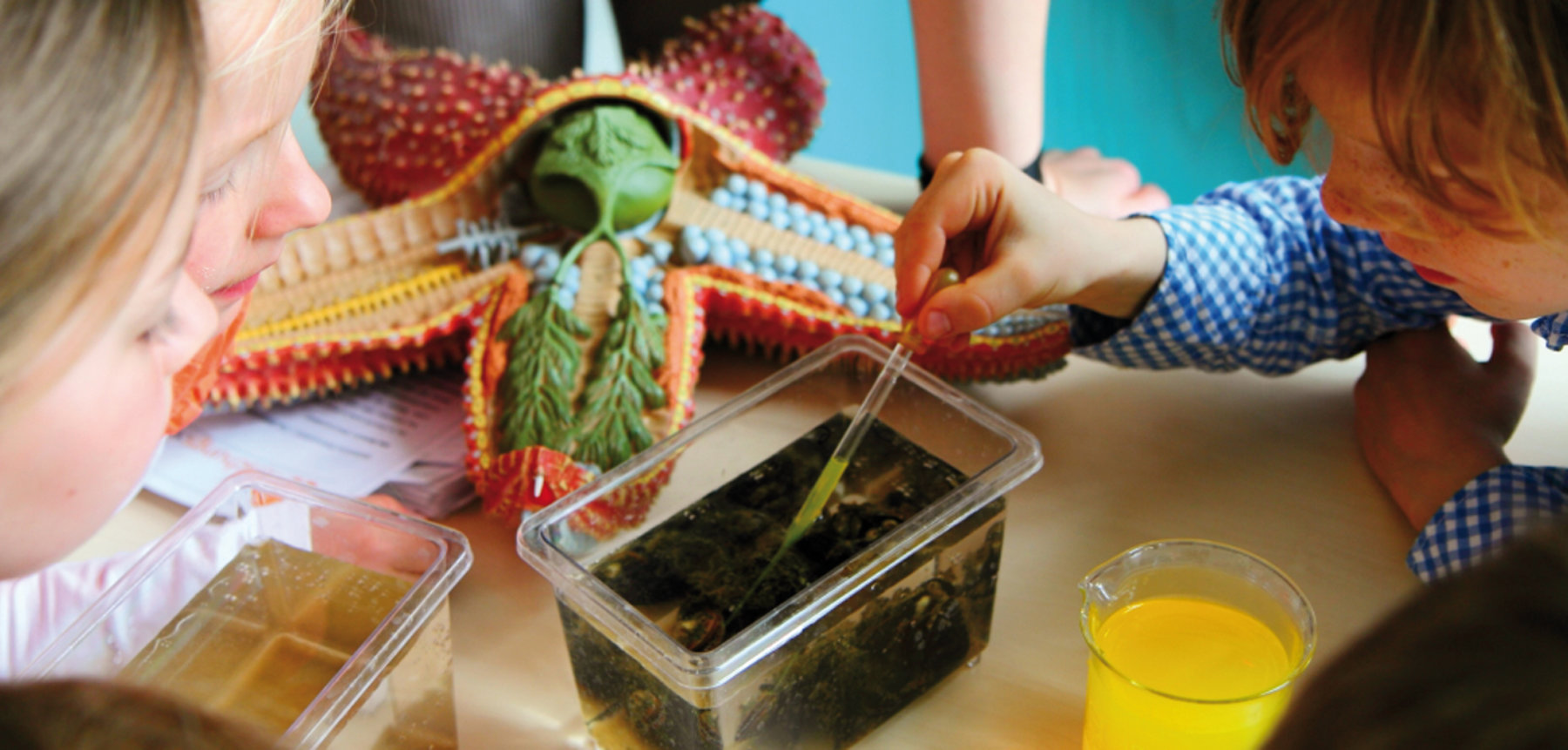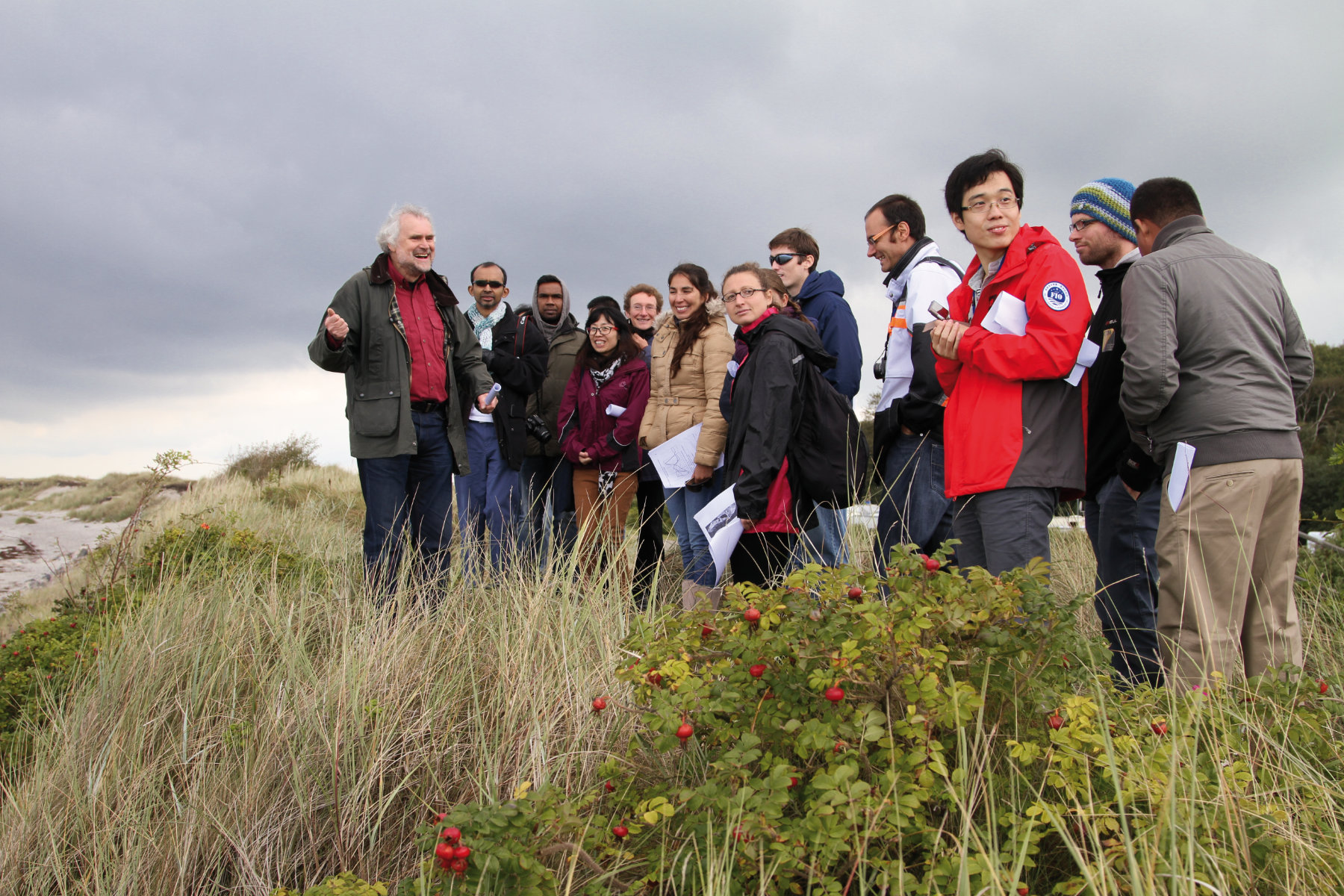The need for better, more informed, science-based ocean management has been a guiding principle of the Excellence Cluster from its inception. In 2015, the Cluster teamed up with the SDG Academy in New York and the International Ocean Institute (IOI), a long-time partner in ocean literacy based in Malta, to upgrade its education outreach efforts through the production of a Massive Open Online Course (MOOC) "One Planet – One Ocean: From Science to Solutions".
As their name indicates, MOOCs are aimed at a large audience, need just an internet connection to participate, and have "learning" rather than public outreach as their goal. These open-source, mostly free and non-accredited, courses bring scientific knowledge to global citizens, students, practitioners, and anyone interested in upgrading their knowledge. So they present a powerful path for the Future Ocean Cluster to bring its knowledge to a broad community, and interact with external thinking.
The Ocean MOOC included modules on topics such as coasts, marine ecosystems, fisheries and aquaculture, and climate. Each theme was approached in a holistic manner, pairing scientific knowledge with an understanding of human interactions with the ocean and the discussion of options for better stewardship and sustainable management of our blue planet. Cluster scientists and IOI members from all the natural sciences, law, economics and philosophy were involved in the MOOC's production.
Each module included several video lectures, material for self-study, assignments involving online research, and quizzes that were mandatory to those aiming for a course certificate. Gaining new knowledge was one goal, but the true excitement lay in the online forums, where participants discussed the issues among themselves and with the lecturers. Weekly live Q&A sessions with international invited experts gave personal, direct access to senior scientists. Over 60,000 video views, 4000 discussion threads and more than 6000 forum entries reflected a huge level of active participation. The Ocean MOOC has been broadcast twice, in 2016 and 2017, and reached a total of 6500 registered participants from 62 countries. Despite requiring several hours per week of study, a respectable seven per cent of participants got the Ocean MOOC certificate of achievement.
The idea of the MOOC was suggested to Cluster Speaker Martin Visbeck by the SDG Academy. The Academy wished to make ocean knowledge part of its portfolio of global education for the implementation of the UN Sustainable Development Goals, including SDG 14, "Life Below Water". Partnership with the IOI in production and as a co-funder of the MOOC followed on from the successful knowledge dissemination achieved by the two organisations in their co-production of the World Ocean Review Series. "Interdependencies in the ocean system are complex, and the ocean forms the largest interconnected system on the globe. Our MOOC offers free access to ocean knowledge to a global learner community" says Martin Visbeck, lead author and a Speaker of the Cluster. "Science forms the basis upon which each of us can campaign for the sustainable use and protection of our blue planet." Avan Antia, the scientific editor of the MOOC, recalls that its original target audience was students at the undergraduate and graduate level. But in fact, many turned out to have completed master's or doctoral degrees, or to be working in ocean-related jobs, for example in ocean management, fisheries, NGOs or ministries. She says: "We were excited to see so many ocean professionals actively engage in the MOOC. They enriched the forum with their case studies and brought context into the discussion." Another key group of participants were teachers, communicators and multipliers, some of whom have gone on to use MOOC materials in their teaching.
The Ocean MOOC remains online (www.oceanmooc.org) as an open-source product even when it is not being broadcast on the learning platform. The resources include a rich collection of lecture videos, reading material, links, assignments and quizzes. Antia says: "We wish to carry the MOOC momentum forward and make dissemination easier, especially in countries without access to expertise in the integrated ocean issues we present. This material is also a valuable resource for independent learners who want a self-paced introduction to ocean issues."
The Cluster experience with this participative format shows that it is a powerful tool for educational outreach. It will be invaluable in disseminating the solutions-oriented research that will emerge from the Cluster's next phase. MOOCs, together with activities such as embedded learning and learner networks, are a very suitable platform for international dialogue on ocean issues and sustainable ocean solutions. They are an exciting new communication path to interact with the interested public that has only just begun to reveal its potential.
The variety of assignments and the amazing amount of
additional materials and links are very
valuable for learning.
